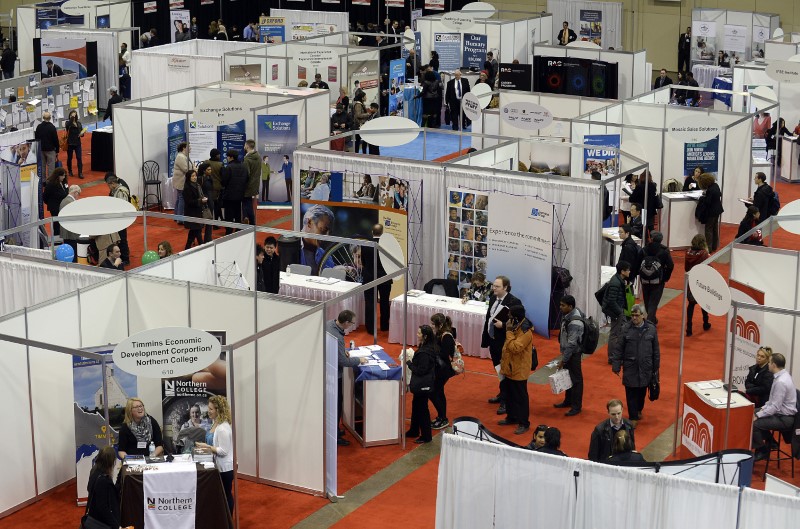By David Ljunggren
OTTAWA (Reuters) - Canadian employers added a greater-than-expected 19,400 jobs in March and the unemployment rate edged up to 6.7 percent as more people sought work, Statistics Canada said on Friday in a report that suggested Canada's economy has finally turned the corner.
The surge in jobs, nearly quadruple analyst expectations, was the fourth straight monthly increase and adds to pressure on the Bank of Canada to sound more optimistic about the economy after a prolonged slump caused by low oil prices.
"While we share doubts about the sustainability of the recent pick-up in economic growth, the recent strength in employment will make it harder for the Bank of Canada to defend its dovishness on the economy and the need to keep interest rates low in the near future," David Madani, senior Canada economist at Capital Economics, said in a research note.
Policymakers at the central bank are expected to keep interest rates on hold next week when they release their quarterly monetary policy report.
Bank of Canada Governor Stephen Poloz said last week the economy had a lot more room to grow, arguing it would be "odd" for policymakers to forget about downside risks just because some data had come in stronger than expected.
The jobs report looked strong even beyond the headline, with gains largely in full-time work and both manufacturing and construction adding employment. Statistics Canada said 18,400 full-time jobs and 1,000 part-time jobs were added.
Analysts in a Reuters poll had forecast 5,000 new positions and said the jobless rate would increase to 6.7 percent from 6.6 percent in February.
The stronger-than-expected report strengthened the Canadian dollar against its U.S. counterpart.
Still, there remain some signs of slack in the economy, with hourly wages of permanent employees up just 0.9 percent from March 2016. Muted wage pressure in the energy-producing province of Alberta, hard hit by the oil crash, was partly responsible.
Doug Porter, chief economist at BMO Capital Markets, also noted the gains in self-employment give the report a softer tone.

"But from a very big picture standpoint the reality is employment just keeps chugging along. It seemed to break out of its funk some time around the middle part of last year and that trend looks to still be in place: that employment and the broader economy have broken out of a two-year lull," he said.